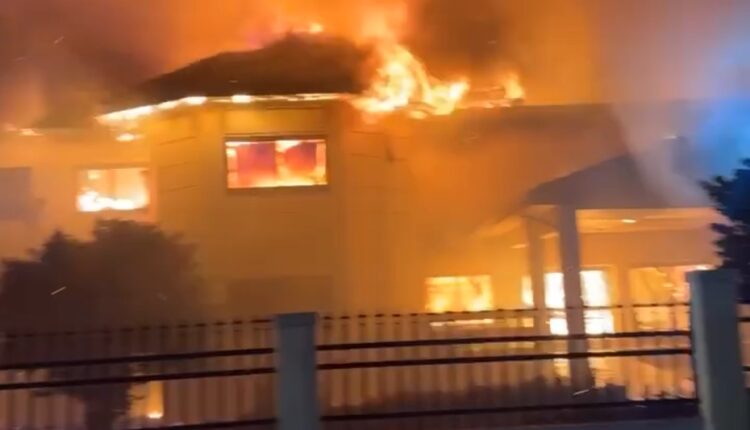The devastating fire that engulfed the Accra Tourist Information Centre has left a deep scar on Ghana’s cultural and economic landscape.
As a vital hub for promoting tourism—one of Ghana’s most critical sectors—the centre was more than just a building; it was a gateway for visitors seeking to explore the nation’s rich history, vibrant arts, and iconic landmarks. The inferno, which reduced crucial documents, promotional materials, and historical artifacts to ashes, represents not just a loss of infrastructure but a significant setback for efforts to boost tourism in a post-pandemic era.
For many local businesses and tour operators who relied on the centre for visibility and networking, the fire is a harsh reminder of the fragility of the systems that sustain livelihoods. Beyond the immediate economic implications, the incident raises urgent questions about the adequacy of fire safety measures in public institutions and the need for stronger disaster preparedness to protect national assets.
On a deeper level, the destruction of the Tourist Information Centre strikes at the heart of Ghana’s identity as a growing destination for global travelers. The centre was a symbol of Accra’s warmth and hospitality, often serving as the first point of contact for tourists eager to experience the country’s famed culture. Its loss is not merely logistical but emotional, erasing years of curated information and connections that helped shape visitors’ perceptions of Ghana.
As authorities investigate the cause of the fire, there must be a collective reckoning—how can Ghana safeguard its heritage and economic interests against such unforeseen disasters? Rebuilding the centre is essential, but so is implementing long-term strategies, including digital archiving of critical resources and improved emergency response protocols. In the face of this tragedy, there is an opportunity to rise stronger, ensuring that Ghana’s tourism sector—and the countless lives it supports—can withstand future challenges with resilience.



